David Koleczek
Does Prompt Formatting Have Any Impact on LLM Performance?
Nov 15, 2024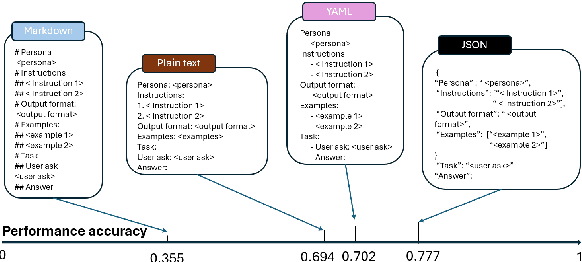
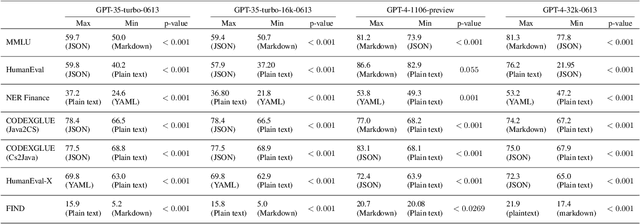
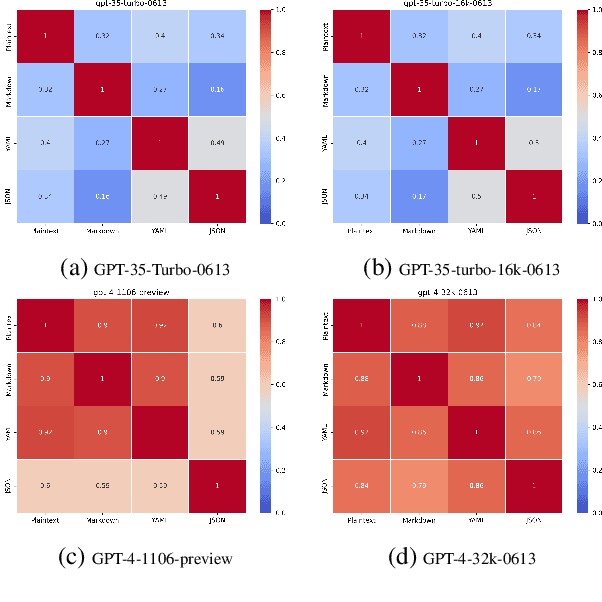
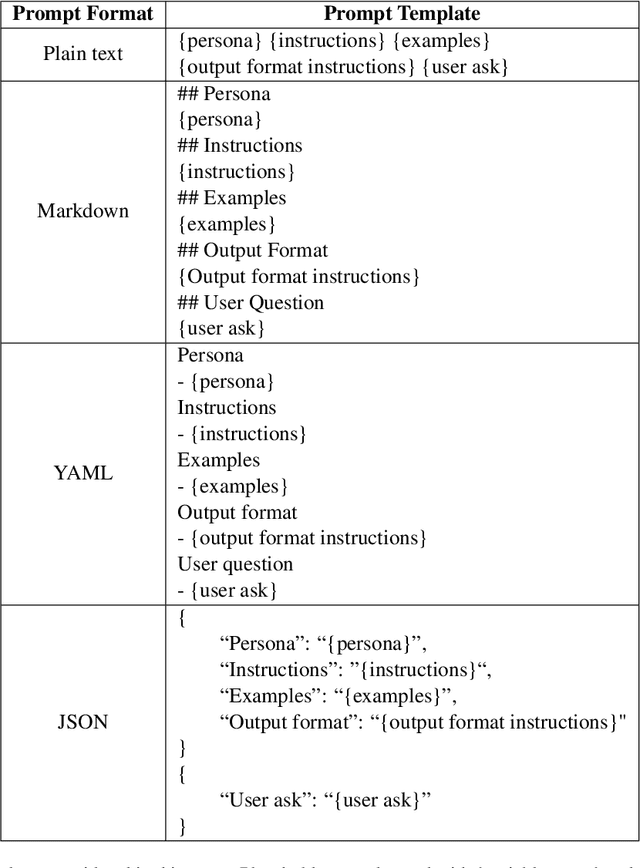
Abstract:In the realm of Large Language Models (LLMs), prompt optimization is crucial for model performance. Although previous research has explored aspects like rephrasing prompt contexts, using various prompting techniques (like in-context learning and chain-of-thought), and ordering few-shot examples, our understanding of LLM sensitivity to prompt templates remains limited. Therefore, this paper examines the impact of different prompt templates on LLM performance. We formatted the same contexts into various human-readable templates, including plain text, Markdown, JSON, and YAML, and evaluated their impact across tasks like natural language reasoning, code generation, and translation using OpenAI's GPT models. Experiments show that GPT-3.5-turbo's performance varies by up to 40\% in a code translation task depending on the prompt template, while larger models like GPT-4 are more robust to these variations. Our analysis highlights the need to reconsider the use of fixed prompt templates, as different formats can significantly affect model performance.
UMass PCL at SemEval-2022 Task 4: Pre-trained Language Model Ensembles for Detecting Patronizing and Condescending Language
Apr 18, 2022



Abstract:Patronizing and condescending language (PCL) is everywhere, but rarely is the focus on its use by media towards vulnerable communities. Accurately detecting PCL of this form is a difficult task due to limited labeled data and how subtle it can be. In this paper, we describe our system for detecting such language which was submitted to SemEval 2022 Task 4: Patronizing and Condescending Language Detection. Our approach uses an ensemble of pre-trained language models, data augmentation, and optimizing the threshold for detection. Experimental results on the evaluation dataset released by the competition hosts show that our work is reliably able to detect PCL, achieving an F1 score of 55.47% on the binary classification task and a macro F1 score of 36.25% on the fine-grained, multi-label detection task.
On Optimizing Interventions in Shared Autonomy
Jan 01, 2022
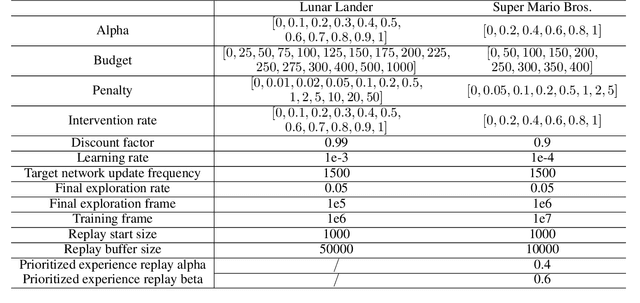

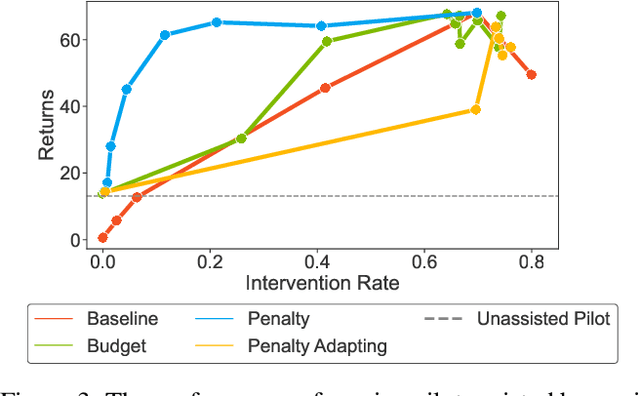
Abstract:Shared autonomy refers to approaches for enabling an autonomous agent to collaborate with a human with the aim of improving human performance. However, besides improving performance, it may often also be beneficial that the agent concurrently accounts for preserving the user's experience or satisfaction of collaboration. In order to address this additional goal, we examine approaches for improving the user experience by constraining the number of interventions by the autonomous agent. We propose two model-free reinforcement learning methods that can account for both hard and soft constraints on the number of interventions. We show that not only does our method outperform the existing baseline, but also eliminates the need to manually tune a black-box hyperparameter for controlling the level of assistance. We also provide an in-depth analysis of intervention scenarios in order to further illuminate system understanding.
 Add to Chrome
Add to Chrome Add to Firefox
Add to Firefox Add to Edge
Add to Edge